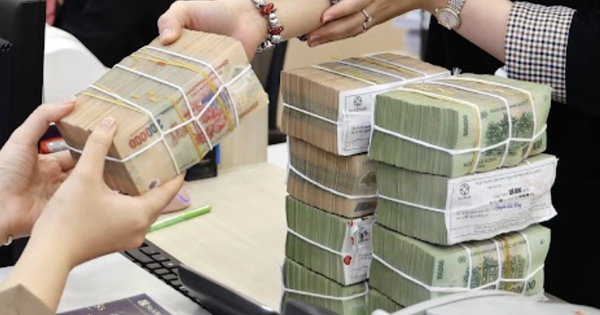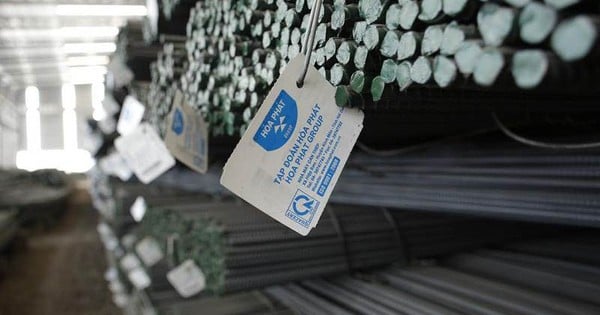Many businesses do not want to borrow capital, while others who need it do not meet the conditions, causing credit to increase by only 3.3% in the past 6 months, the lowest level in many years.
This information was stated by the State Bank at a press conference summarizing the results of monetary policy management and banking activities in the first half of the year, on June 21.
Accordingly, as of June 15, outstanding loans to the entire economy reached about VND12.3 trillion, up only 3.36% compared to the end of last year and nearly 9% compared to the same period last year. Compared to the end of April, credit flowing into the economy increased by only 0.3%, equivalent to nearly VND36,000 billion.
According to Deputy Governor Dao Minh Tu, the slow credit growth is due to many reasons. One of the biggest reasons is the general difficult context of the economy, investment and consumption demand has decreased, so credit demand has also decreased accordingly. Many businesses lack orders, inventory, and production has been suspended, leading to a decrease in demand for loans.
Mr. Tu said he met with credit officers of commercial banks and asked why it was difficult to lend. These officers said that lending was their business target (KPI), and if they did not meet their KPI, their income would decrease. The problem was that customers themselves had no need and even asked to return the loan.
"Many businesses say they do not have plans for further investment. Finding customers and convincing them to keep their outstanding loans is still difficult at this time," the Deputy Governor said, adding that from a macro perspective, the current slow credit growth is a concern for the Government, the Prime Minister and the State Bank.

Deputy Governor Dao Minh Tu at the State Bank's press conference on the morning of June 21. Photo: SBV
In addition to difficulties from the general market, slow credit growth also comes from a number of other reasons. Among them, some customer groups have a need for loans but have not yet met the loan conditions. "The lending and capital absorption capacity of the economy must reach a balance point, we cannot try to lend at all costs," commented Deputy Governor Dao Minh Tu.
Regarding interest rate management , since March, the State Bank has continuously adjusted the base interest rate down 4 times by 0.5-2% per year. The average deposit interest rate of commercial banks is currently around 5.8% per year (down 0.7% compared to the end of 2022). The average lending interest rate in VND is around 8.9% per year (down 1% compared to the end of 2022).
According to the Deputy Governor, the reduction of operating interest rates and the development of lending interest rates in the market often have a delay, because the input capital costs of many loans remain high. When interest rates increase sharply, many people choose to deposit money with long terms. However, the representative of the State Bank said that banks must share the difficulties with businesses and the economy by reducing the burden of borrowing costs.
"The previous story of high mobilization still having to lend at high interest rates is not wrong, but in difficult times, banks should share, using this amount to offset another amount to be able to actively reduce interest rates," said Mr. Tu.
According to the assessment of the Analysis Department of SSI Securities Company (SSI Research), most operating interest rates have decreased to the equivalent of the period of 2020, when the State Bank implemented a loose monetary policy to support the economy due to the impact of Covid.
Although this is a proactive move by the regulatory agency in the context of economic difficulties, the analysis team believes that reducing the operating interest rate is not a sufficient condition at the present time. "Improving output for businesses as well as the practical implementation of solutions from the Government will have more impact on the lending interest rate level in the market," said the report of SSI Research.
Besides, pressure on exchange rates also needs to be considered when the US Federal Reserve's (Fed) interest rate implementation roadmap is unclear or inflationary pressure when core inflation is at a high level.
Minh Son
Source link





































































Comment (0)